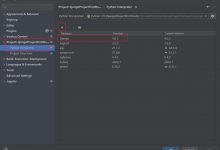目录
- 前言
- 自定义选项
- 需求场景
- 推荐阅读
前言
我们要知道
proto3
和
proto2
的语法,并不是完全兼容的。
具体可查阅官方文档:
- Overview
- Language Guide (proto2)
- Language Guide (proto3)
如果上述链接无法打开,可以访问这个文档:Overview – 语雀 。
自定义选项
在
proto3
中,常见的实现插件的方式是使用
自定义选项
,也就是
extend
标签,其中支持的
extend Options
有:
-
MethodOptions
-
ServiceOptions
-
EnumOptions
-
EnumValueOptions
-
MessageOptions
-
FieldOptions
-
FileOptions
-
OneofOptions
-
ExtensionRangeOptions
具体写法可参考:
import \"google/protobuf/descriptor.proto\";extend google.protobuf.MessageOptions {optional string my_option = 51234;}message MyMessage {option (my_option) = \"Hello world!\";}
需求场景
假设,我们的需求场景是这样的:
我们有很多的拦截器,其中不同的
service
可能会使用一个或多个拦截器,不同的
method
也可能会使用一个或多个拦截器,在
helloworld.proto
中
-
service Greeter{}支持登录令牌验证
-
rpc SayHello1()
支持
IP
白名单限制和记录日志
-
rpc SayHello2()
支持禁止记录日志
// helloworld.protoservice Greeter {rpc SayHello1 (HelloRequest) returns (HelloReply) {}rpc SayHello2 (HelloRequest) returns (HelloReply) {}}message HelloRequest {string name = 1;}message HelloReply {string message = 1;}
我们需要在
proto
文件中,定义出
service
使用了哪些拦截器?定义出
method
使用了哪些拦截器?这样
proto
文件就会更加语义化,更加清晰明确,当大家看到定义的文件时,对使用的拦截器一目了然。
如何实现这个功能?
这时,我们就需要用到
MethodOptions
和
ServiceOptions
选项,通过名字大概也能猜到
MethodOptions
是定义方法选项的,
ServiceOptions
是定义服务选项的。
extend google.protobuf.MethodOptions {...}extend google.protobuf.ServiceOptions {...}
大家有实现的思路吗?欢迎留言评论 ~
推荐阅读
- Go – 关于 protoc 工具的小疑惑
- Go – 关于 .proto 文件的小思考
- Go – 使用 sync.WaitGroup 来实现并发操作
- Go – 使用 sync.Map 解决 map 并发安全问题
- Go – 基于逃逸分析来提升程序性能
 爱站程序员基地
爱站程序员基地


